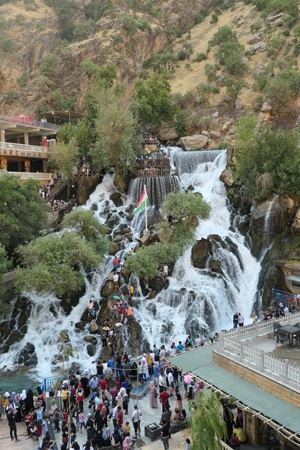Introducing New Staff Vol.87 : Mostafa KHALILI
2025/11/13
Becoming a Researcher across Borders: From Tabriz to Tokyo
KHALILI, Mostafa
(Assistant Professor, October 2025)

I was born in Tabriz, Iran, where Azeri was my mother tongue, Persian the national language, and Arabic the language of religion. Growing up among these languages—and the worlds they opened—shaped how I came to think about identity, belonging, and the complex negotiations people make across cultural and political boundaries. This early experience of living between languages and identities became the foundation of my intellectual curiosity.
Since childhood, I have been fascinated by how human beings live, believe, and organize their social worlds. Although I initially studied electrical engineering at university, I soon realized that my true passion lay in the humanities and social sciences. During a period of hitchhiking across the Middle East, I met people whose lives were defined by borders—Azeris, Georgians, Armenians, and Kurds—and these encounters profoundly transformed my understanding of the region. Witnessing the Syrian conflict and its consequences further deepened my conviction that anthropology could provide deeper insights into the human condition than any technical field could.
My intellectual journey to East Asia began with a deep curiosity about the region’s historical and cultural diversity. This passion brought me to Japan in 2015, where I pursued my master’s degree at Ritsumeikan Asia Pacific University (APU) in Beppu. My research there examined Azeri communities across borders and explored how ethnic identities have been shaped differently through historical and political contexts. These formative years in Japan not only broadened my academic perspective but also deepened my understanding of Asia as an interconnected space of dialogue and mobility.
Building on that foundation, I completed my PhD at Doshisha University in Kyoto, focusing on the Kurmanji-speaking Kurds in the tri-border areas of Iran, Iraq, and Turkey. Between 2017 and 2020, I conducted extensive fieldwork in these regions, examining how ordinary people navigate overlapping loyalties, ethnic identities, and state structures—sustaining coexistence and ambivalence amid ongoing tensions. This experience taught me that political life in borderlands often unfolds through subtle negotiations rather than open confrontation.
After completing my PhD in 2020, I joined Sophia University as a JSPS Postdoctoral Fellow, where I expanded my research comparatively to include Kurdish, Azeri, and other minority communities in Iran, Iraq, and Turkey. From April 2023, I became a Hakubi Fellow at Kyoto University. The Hakubi Program offered not only an intellectually vibrant and interdisciplinary environment but also the freedom and generous support to develop my research internationally. During this period, I held visiting fellowships at the London School of Economics (LSE) and the University of Oxford, where collaborations on Kurdish and borderland studies continue today.
Since October 2025, I have joined ILCAA as an Assistant Professor. Here, I aim to deepen my ongoing projects by developing comparative studies on ethnicity, nationalism, and minority politics in the Middle East. Working alongside colleagues in anthropology, linguistics, and history, I believe ILCAA provides one of the most stimulating and supportive environments for interdisciplinary research in Japan—and I am so excited to work here.
For me, the path from Tabriz to Tokyo is not only a geographical journey but also an intellectual one—an effort to connect local voices, global scholarship, and human experiences across borders.